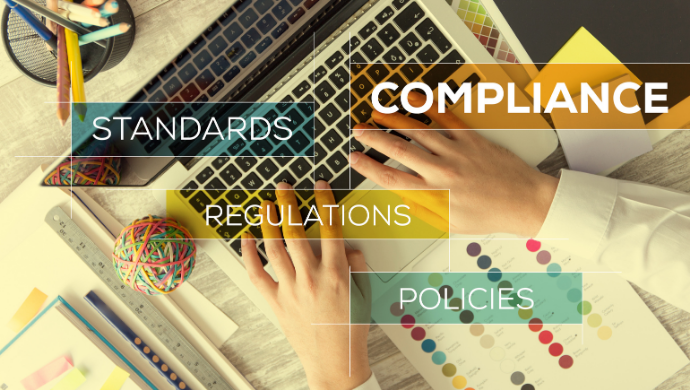KEEP IN TOUCH
Subscribe to our mailing list to get free tips on Data Protection and Cybersecurity updates weekly!







Because getting a data protection officer service is mandatory for all organisations in Singapore, the question now is how to have one: internal appointment, in-house hiring or outsourced?
Through various articles here in Privacy Ninja, we have always delivered the message that under the Personal Data Protection Act 2012 (PDPA), all organisations in Singapore are required to establish and carry out regulations and practices crucial to satisfy its duties under the PDPA. An important element of fulfilling this mandate is the designation of at least one individual known as the data protection officer (DPO). Generally speaking, a DPO manages the data protection duties within the organisation and guarantees its full compliance with the PDPA.
Appointing a DPO is a must or get ready to be slapped with a hefty fine – ranging from $5,000 to $20,000.
Also Read: Going Beyond DPO Meaning: Ever Heard of Outsourced DPO?
Sadly, many organisations seem to take cybersecurity and compliance for granted until it’s too late to mitigate the risks. In the wake of a data breach, an organisation’s user records could end up in the wrong hands (for instance, the RedDoorz case), could cost businesses hefty fines or stern warnings from the Personal Data Protection Commission (see the August 2020 data breach cases), and may even lead to loss of customer confidence. Eventually, damage control may cost even more than if businesses had only ensured full compliance and set up best cybersecurity practices right from the get-go.
Also Read: Free Guide For Appointing A Data Protection Officer (2020)
While getting a DPO is mandated for all organisations in Singapore, the scope of a DPO’s responsibilities may vary according to the needs or risk appetite of that organisation. Nonetheless, the PDPC does list down possible duties of a DPO, which may include, but are not limited to the following:
PRO TIP: As with other compliance mandates, it is best to be knowledgeable about specific components of such laws, especially when your business or livelihood’s continuity is on the line. For instance, in order to understand more about data privacy and data protection officer service, you can leverage online consulting courses such as this one from Privacy Ninja, so relevant individuals from your organisation can be equipped with the best training from subject matter experts.

Let’s talk facts: Do you know that not getting a data protection officer service may spell catastrophe for your business? Even a competitor can report on your dismal data protection practices or your failure to appoint a DPO.
Data Protection Officer Service: Exploring Internal Appointment Or In-house
When it comes to getting a DPO, the PDPC does offer provisions for internal appointment or hiring one in-house, and both are attractive options. Appointing someone from within the organisation assures you that this individual is already privy to your business practices and is a trusted member of your organisation. For small businesses, this is especially their go-to route as it is more cost-effective than hiring in-house or even outsourcing the DPO service.
However, appointing a DPO from among existing members of the organisation can have its drawbacks. For one, there exists a conflict of interest. A DPO must be independent in such a way that he or she can challenge the stakeholders on existing vulnerabilities. For another, the length of training the individual must go through in order to reach a certain level of expertise on the subject matter might take a toll on time and resources, and may affect that individual’s official role in the organisation.
For larger companies with complex or highly sensitive personal data, the preference is hiring a dedicated employee (an expert) who will specifically fulfill the DPO tasks. However, this may not be the best route for smaller organisations, as a full-time data protection officer service is not always required and may unnecessarily put a dent on company budget.
Outsourcing Data Protection Officer Service: A Winner For Startups and SMEs
Bridging the gap in this space is DPO-As-A-Service, whereby organisations can have the best of worlds: tapping on a pool of professionals to fulfill the DPO tasks on a budget-friendly scale.
Specifically, by outsourcing the role of the DPO, your organisation stands to reach or gain the following benefits:
How Privacy Ninja Can Help Fulfill Your DPO Obligations
Privacy Ninja is also a startup, and its team is the first to understand how smaller businesses may have resource or capability constraints, and hiring a full time Data Protection Officer service may not be practical.
Hence, we established the DPO-As-A-Service annual model, to make it possible for organisations to outsource the role of a DPO. The service is an all-inclusive data protection and privacy service, where we go above and beyond the basic DPO tasks. Our service includes a data protection annual plan to outline all the steps required to attain full PDPA compliance for your organisation. To get started and to let us know how we can help you with your data protection officer service, click here.
Privacy Ninja provides GUARANTEED quality and results for the following services:
DPO-As-A-Service (Outsourced DPO Subscription)
PDPA Compliance Training
PDPA Compliance Audit
Digital Transformation Consultancy
Data Protection Trustmarks Certification Readiness Consultancy
PDPA Data Protection Software
Vulnerability Assessment & Penetration Testing (VAPT)
Smart Contract Audit